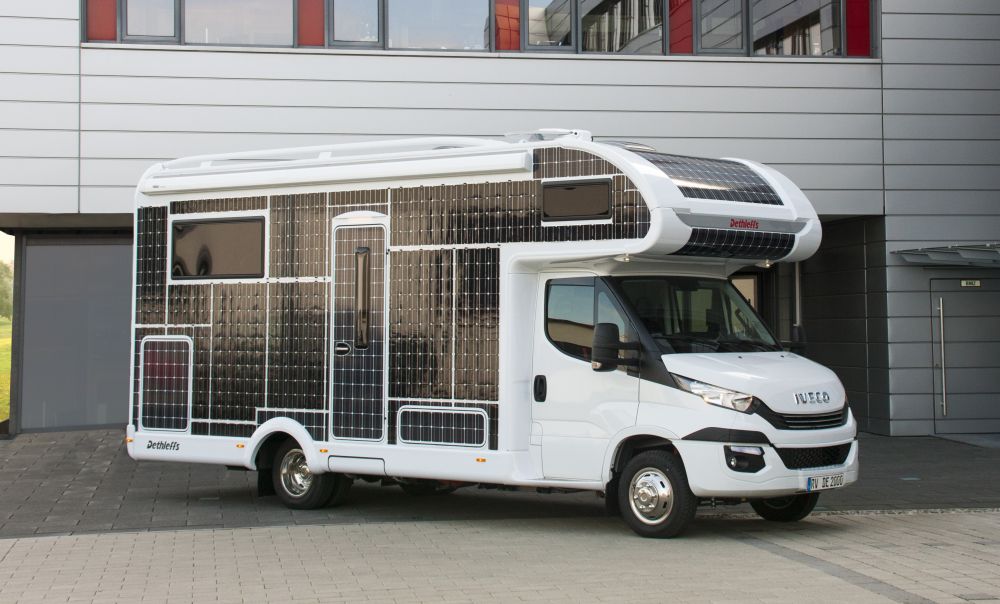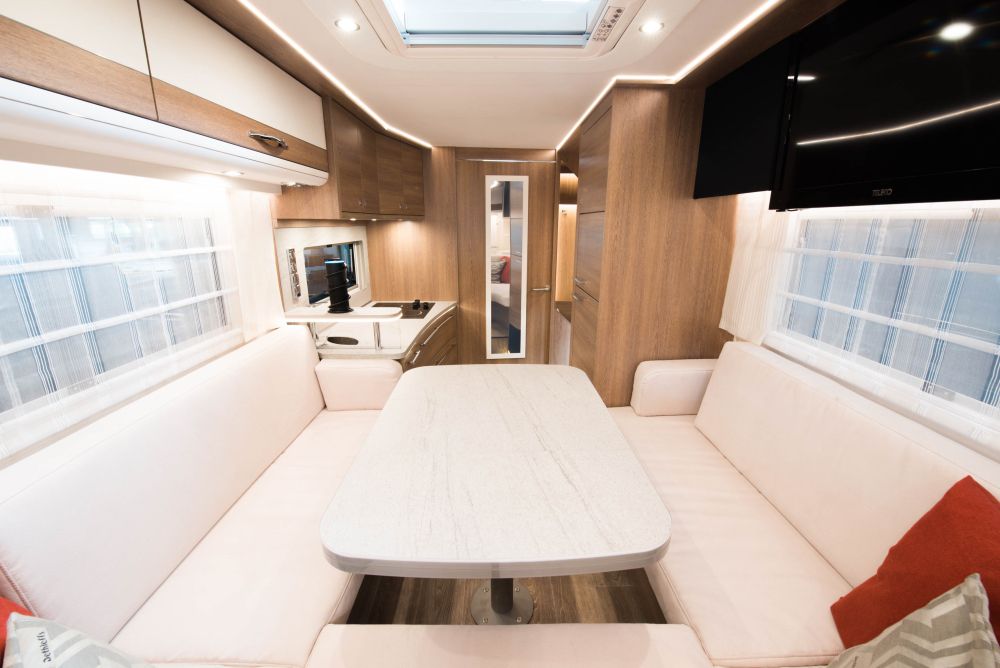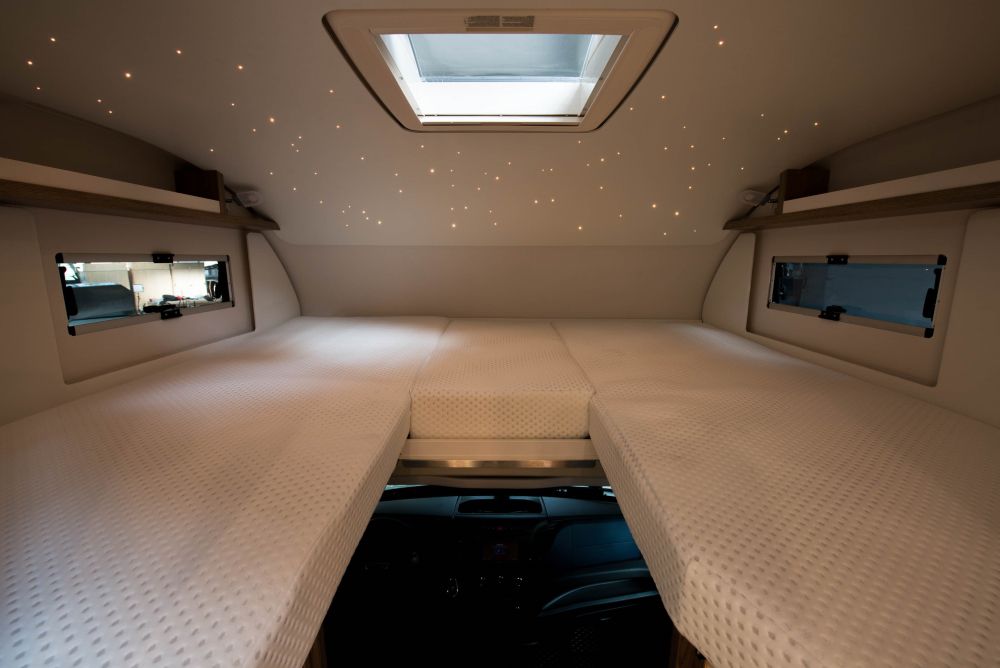Electric transportation is moving forward rather quickly as a viable option for both individuals and public transit (and soon commercial transport), thanks to rapid improvements in electric motor and battery technology, and we're seeing more major automakers committing to adding electrified vehicles to their product lines. However, when it comes to larger consumer vehicles, such as pickups and motorhomes, the choices are few and far between, but that may start to change soon, if the announcement from the German RV company Dethleffs is any indication.
Whether you call them caravans, RVs, or motorhomes (or tiny homes), the idea of a home on wheels is one and the same for all of those monikers, and owning one is a dream for many these days, either as a nomadic tiny home (#vanlife) or as a vacation or retirement vehicle. Having borrowed a friend's rather large RV this summer for a family trip, I can attest to the ease and convenience of traveling with your home on your back, but that feeling was also somewhat offset by the reality of having to frequently fuel up a heavy RV that gets 5 to 8 miles to the gallon, which can put a hurting on your wallet on a long trip. An electrified motorhome, on the other hand, could be much cheaper to drive, and have zero tailpipe emissions, with the tradeoff of either settling for shorter trips or having longer 'refueling' stops -- at least until battery technology takes another leap forward in capacity and a step down in costs.
German caravan company Dethleffs seems to have seen the writing on the wall about electrification, or at least an opportunity for first-mover advantage, as it has revealed an electrified version of a Class C motorhome that goes above and beyond just being fully electric, as it's completely wrapped in thin-film solar cells that can be used for topping off the RV's batteries. The cabin of the e.home is built onto an Iveco Daily Electric chassis, which has an 80 kW motor and a 228 Ah battery pack of sodium-nickel-chloride cells that boasts a range of up to 174 miles (280 km) per charge in its pre-conversion state. Once the vehicle is fully kitted out as a motorhome, however, that range per charge may be significantly shorter, suggests New Atlas, saying the range "might fall as far as 103 miles (167 km)."
Dethleffs has added some 31 square feet of thin-film solar cells to the exterior of the e.home, creating a 3 kW (peak) solar array and adding a little bit of energy autonomy to the e.home. However, there's at least one major issue with the solar array, which is that it's on all sides of the vehicle, so no more than half of it can be exposed to direct sunlight at any given moment. Perhaps that's intentional, as it would allow some solar electricity gains to be had during the day no matter which direction it's facing, but there's no indication of what the average solar output from the array is, nor how long it would take to charge the e.home battery pack from solar alone. According to Victron Energy, which supplied a number of the electrical components to the build, high-power capacitors ("Supercaps") are installed in the e.home, which "allow a faster recharge and delivery of the electrical energy in comparison to the usual batteries."



 RSS Feed
RSS Feed